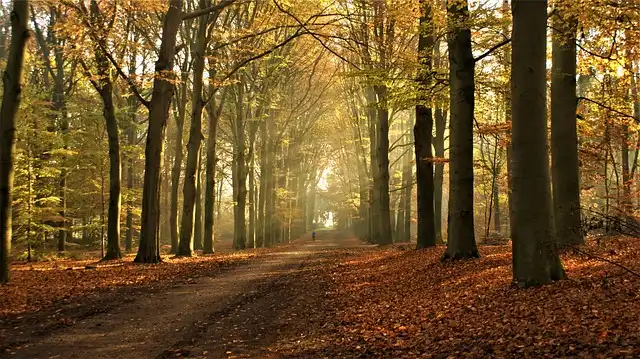Students not planning to vote cite dislike of candidates

Just over 1,000 college students across the United States responded to the Inside Higher Ed and Generation Lab survey, which has a margin of error of plus or minus 3.1 percent.
Youthful voters generally might make the difference in between a success for Harris and a 2nd Trump term, having actually played a significant duty in choosing Joe Biden in 2020. And also, the big bulk of participants who claimed they are not voting recognized as either Independents (41 percent) or signed up with a third party (26 percent)– an additional population both Trump and Harris are functioning to court.
“Those are the people that no get-out-the-vote project is mosting likely to get to,” stated Anil Cacodcar, chair of the Harvard Popular Opinion Task, which runs the largest poll of young Americans’ political opinions. “Seven out of 10 of them are saying they don’t like the candidates, and they believe their vote will not matter, and those aren’t beliefs you can alter in 2 weeks. A few of them are practically as devoted to not electing as some individuals are to choosing one or the other.”
Past research has shown that numerous youngsters that avoid voting do so since they don’t really feel ballot is an efficient method to make change, also when they are politically engaged, claimed Mindy Romero, creator and director of the Center for Inclusive Freedom at the College of Southern The Golden State. Projects are frequently inefficient at transforming that assumption, too.
Just one participant shared that they intended to withhold their ballot to protest the current presidential administration, regardless of the increase in youth activist projects targeted at protesting the Biden administration’s handling of Israel’s battle in Gaza by declining to choose Vice President Kamala Harris.
“I don’t care that wins, and I don’t believe it’ll make much of a distinction anyhow,” one of the participants created, while one more said that the political election totals up to “choosing lesser wickedness and enduring two parties who seem to never obtain anything excellent done.”
About 28 percent of participants chosen “various other” when asked why they don’t plan to elect, with some defining they are not a citizen or are as well young to vote. But others reiterated disapproval of the present political system or a sense that ballot was fruitless.
Other political priorities of nonvoting students vary rather from the basic pupil population. Maybe unsurprisingly, a little over one in 5 nonvoters stated they care about none of the concerns, which are provided in the chart listed below, or do not appreciate politics.
Of those who have actually decided not to vote, 26 percent stated they do not like the prospects and 24 percent stated they are “turned off” by national politics when asked why they won’t cast a ballot. A smaller sized number, 16 percent, say they feel their vote won’t count, while just a small 4 percent stated they felt ballot was also difficult.
Trainees who aren’t planning to elect stated that economic situation and reproductive legal rights were several of the most essential issues that might influence their choice to cast a tally this fall. That associate the general study found.
However nonvoters were much less likely than their peers to state they appreciate the future of democracy (by a distinction of 17 portion factors), racial justice and civil rights (a difference of 10 portion factors) and LGBTQIA+ issues (a difference of 10 portion points).
Cacodcar said he was unsurprised to see that the leading problem– the economy– corresponded between all pupils and not only those not preparing to elect. It ranks as the problem of the majority of problem amongst young people in general according to numerouspolls, and college students, managing tuition costs and the often-high prices of residing in an university community, frequently deal with the burden of rising cost of living and other financial challenges.
It’s absolutely an extreme underestimation of the number of pupils will really give up casting a tally this year; college student voter yield in 2020 was 66 percent, a document. Of those who have made the choice not to vote this year, the bulk indicated that choice was tied to do not like and question of American politics and the politicians on the ballot this year.
Cacodcar stated that recognizing the viewpoints of trainees who do not intend to elect “isn’t really something, now, a project would wish to study extensive. Individuals that are interested in long-term public engagement would certainly be interested in why people are not involving this political election.”
He stated he talked to one Michigan student, for example, that stated he leading issue of issue was reproductive rights, “yet she was battling to take note of that when she was struggling to place food on the table as an university student.”
Simply over 1,000 university student throughout the United States replied to the Inside Higher Ed and Generation Laboratory study, which has a margin of mistake of plus or minus 3.1 percent. Ninety-eight trainees claimed they weren’t intending to elect while 15 percent claimed they were unsure.
It might be near impossible to transform the minds of students that are established on not electing, however when asked what steps university might require to make ballot easier, 35 percent said terminating course on Political election Day would be valuable. The second most typical response, however, at 26 percent, was that colleges should not be encouraging students to elect.
The only issues on which nonvoters respected the same amount as all voters were the environment (20 percent among all participants and 22 percent amongst nonvoters) and criminal offense (17 percent for both classifications). They additionally cared slightly a lot more about the Israel-Hamas battle, with 13 percent of nonvoters choosing it as an essential problem versus just 11 percent of all trainee voters.
1 n’t stop kicking2 percent
3 vote
« 10 Reasons Why Your Cat is Keeping You Up All NightFaculty heavily back Harris—but they won’t tell students to »
